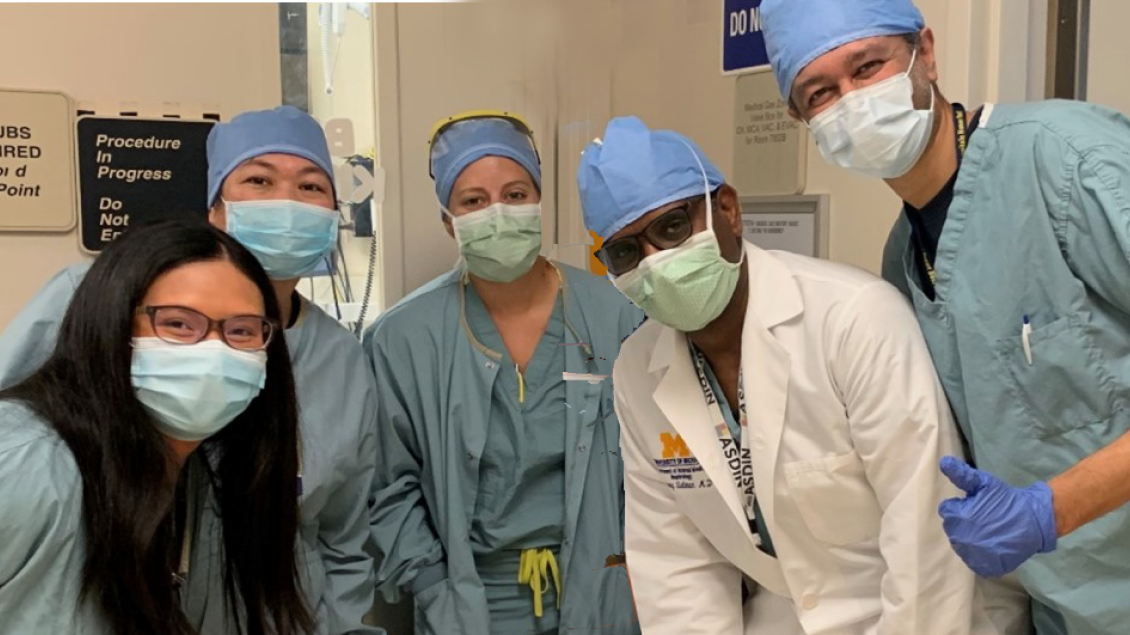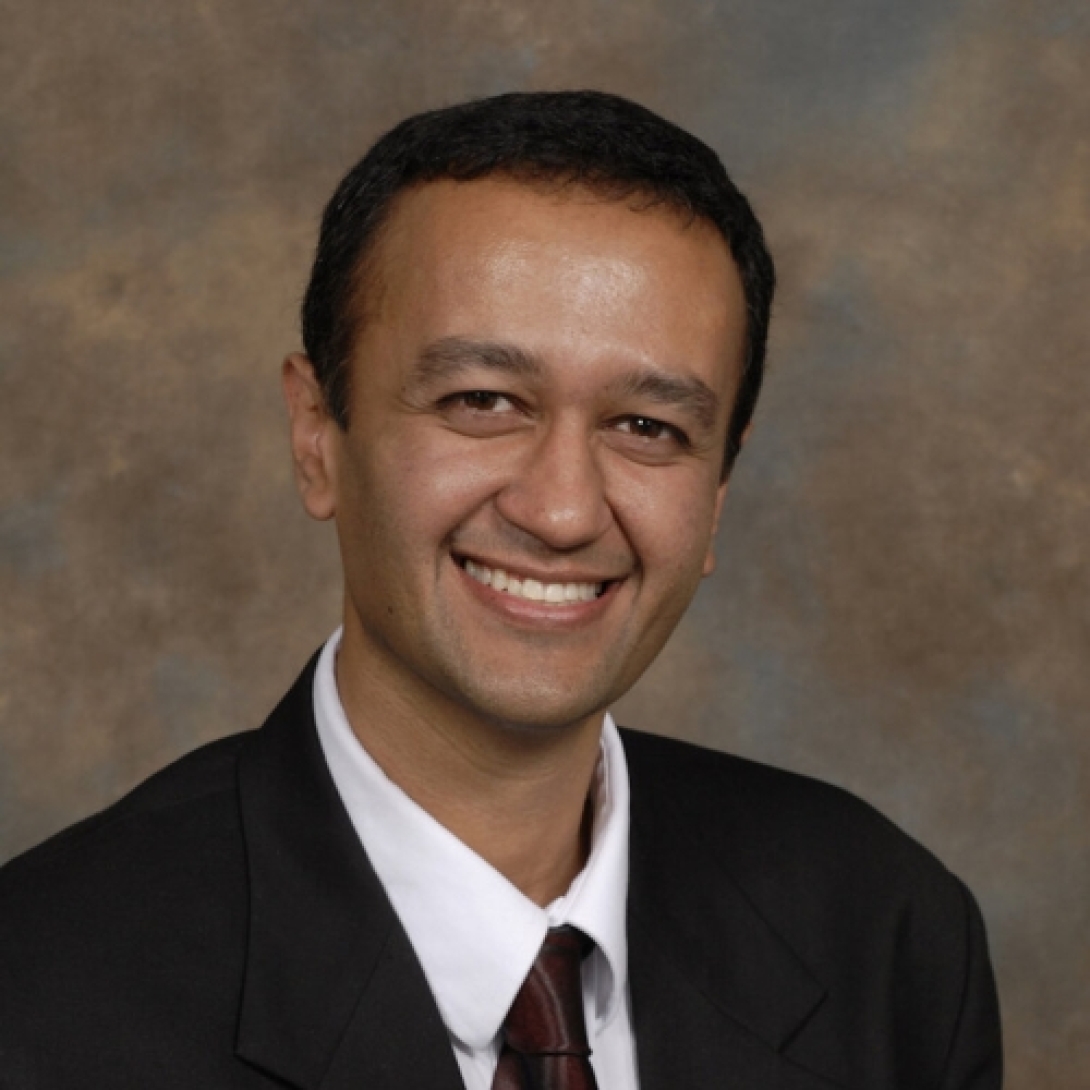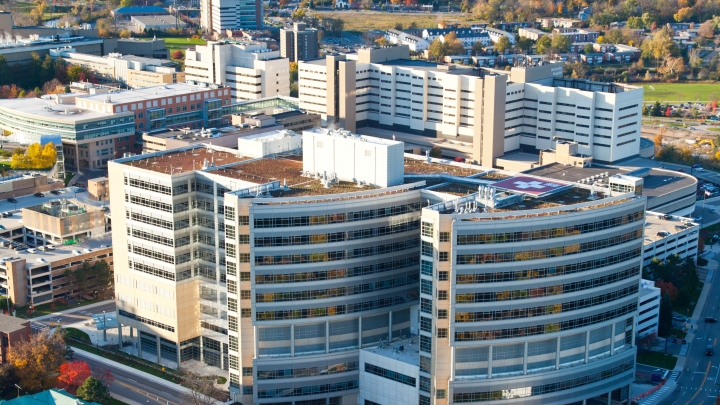
Our one-year Interventional Nephrology Fellowship Training Program is available to trainees who have completed their nephrology fellowship and are board certified in Internal Medicine.
We provide a structured program so that the fellow has a comprehensive understanding of dialysis access care, is proficient in procedures, can recognize complications and partner in inter-disciplinary conferences to provide patient specific care.
Over one year, the fellow will:
- Participate in the interventional suite learning procedures under the direct mentorship and supervision of our faculty.
- Participate as a clinical attending on the nephrology service.
- Participate in ASDIN approved didactic curriculum and in multispecialty interventional mortality and morbidity conferences.
- Pursue one or more dialysis access research projects
I would like to warmly welcome and thank you for showing an interest in our interventional nephrology fellowship program. We are one of the few academic programs in the country to provide a comprehensive 360-degree dialysis vascular access care training.
Fellows will gain one year of interventional experience and train at the dedicated interventional nephrology unit at University of Michigan which will prepare you for a career as an interventional nephrologist in both the academic and private practice settings and which will meet the requirements for American Society of Diagnostic and Interventional Nephrology (ASDIN) certification.
As a fellow you would be exposed to a diverse population of patients, develop a basic knowledge of the anatomy and pathogenesis of vascular access dysfunction, and an understanding of the clinical skills to recognize and manage dialysis access issues and competently perform appropriate diagnostic and therapeutic interventional procedures. In addition, you will be exposed to the latest cutting-edge technologies like endovascular arteriovenous fistula creation and fellows will do research with interventional nephrology faculty in dialysis access care and are expected to present abstracts at national meetings and to publish manuscripts in peer-reviewed journals.
Fellows will be mentored by nationally recognized ASDIN certified interventional nephrologists who are dedicated to developing new techniques that will improve patients’ lives by facilitating vascular access for hemodialysis patients with novel methods of treatment and prevention.
Please feel free to browse the website, familiarize yourself with the highlights and objectives of the program, reflections from current and past fellows and lastly how to apply. I look forward to hearing from you in the near future.
Karthik Ramani, MD, MHA
Clinical Associate Professor
Director, Interventional Nephrology Fellowship Training Program
1500 E. Medical Center Drive
3914 Taubman Center, SPC 5364
Ann Arbor, MI 48109-5364
- Develop familiarity with the various types of vascular access
- Learn the pathophysiology and management options of access dysfunction
- Learn physical examination skills to identify signs of access dysfunction
- Learn the basics of radiation safety
- Provide supervised hands on training of various interventional procedures
- Recognize procedural complications and learn how to manage them
- Learn the basis of ultrasound and its use in the management of access dysfunction
- Participate and present research initiatives at various interventional nephrology research conferences (locally and nationally)
Program Requirements
- ABIM-certified in Internal Medicine
- ABIM-certification eligible in Nephrology
- Citizenship/Immigration status: Applicant should be an American citizen or Alien Resident (Green Card bearer). J1 and H1B visa status are not acceptable
- Applicant should meet all of the criteria established by the University of Michigan Medical School for a clinical appointment as Lecturer in the Department of Internal Medicine
Required documents to submit for review:
- Cover letter addressed to Karthik Ramani, MD (Director, U-M Interventional Nephrology Fellowship Training Program)
- Updated CV
- Two letters of recommendation
1500 E. Medical Center Drive
3914 Taubman Center, SPC 5364
Ann Arbor, MI 48109-5364
- The applicant should have a current Michigan medical license and meet all requirements for credentialing.
- If considered a suitable candidate, U-M will schedule a phone interview.
- If the phone interview is successful, the candidate is invited for a formal interview at U-M (expenses covered by the applicant).
- If the candidate is selected, electronic communication will be used for notification. Once the candidate accepts the position, Dr. Subramaniam Pennathur (Chief of Nephrology) will issue a formal letter of offer.
We are committed to equipping each fellow with the necessary tools they need to excel as experts and leaders, and empowering them to advance patient care, research, and education in nephrology.
Interventional Nephrologists work to improve vascular access for hemodialysis and, thus, the delivery of care to their dialysis patients. In addition, Interventional Nephrologists create and maintain vascular access for hemodialysis. The common procedures performed by faculty and fellows at the U-M include:
- insertion and removal of tunneled hemodialysis catheters
- insertion and removal of peritoneal dialysis catheters
- fibrin sheath removal from chronically indwelling central catheters
- mechanical thrombectomies of clotted hemodialysis catheters
- angiograms
- angioplasties
- mechanical thrombectomies of clotted AVFs and AVGs
- diagnostic sonography
- renal biopsies
- accessory vein ligation
- peritoneal dialysis catheter insertion/manipulation
This fellowship meets the requirements for American Society of Diagnostic and Interventional Nephrology (ASDIN) certification. In order to fulfill the requirements for certification, the applicant must provide documentation that they:
- Are currently certified by the American Board of Internal Medicine in Nephrology, American Osteopathic Board of Internal Medicine in Nephrology, American Board of Radiology, American Board of Surgery, or National Board of Physicians and Surgeons. (Note: No exception will be granted for Board certification or recertification that is pending.)
- Practice as an Interventional Nephrologist, Interventional Radiologist or Surgeon in the United States (Note: ASDIN HVA certification is only valid as long as certified physician is practicing in the US. Certification is void outside of the US.)
- Completed the formal training program requirements listed under paragraphs A – C below during which time no less than one-hundred twenty-five (125) procedures§ have been successfully completed as primary operator¥ in the following categories within the preceding 24 calendar months of the submission of the application for certification:
- a. Angiography of peripheral hemodialysis vascular access – 25 cases including both grafts and fistulas
- b. Angioplasty of peripheral hemodialysis vascular access – 25 cases including both grafts and fistulas
- c. Thrombolysis/thrombectomy of peripheral hemodialysis vascular access – 25 cases including both grafts and fistulas
- d. Endovascular Stent Placement – 10 cases
- e. Tunneled long-term catheter procedures – 25 cases, of which at least 13 cases must be de novo placements and the remainder may be catheter exchanges.
- (Optional ≠ ) For advanced procedures in addition to Broad Area above in item # 2, must have successfully completed the following number of procedures successfully as primary operator within the preceding 24 calendar months of the submission of the application for certification:
- a. Obliteration of accessory veins (fistula side branches) – 5 cases
- b. Insertion of subcutaneous ports – 5 cases
- c. Banding – 5 cases
- If an applicant has to add additional procedures that were not completed in their formal training program, the applicant must either go back to original training program to complete procedure(s) or complete procedure(s) supervised by a physician who is ASDIN certified to perform the procedures.
The University of Michigan offers highly competitive salaries and generous benefits to our fellows and advanced trainees. Trainee salary will be commensurate with that of a House Officer at an equivalent level of training based on the HOA contract.
Reem Yusufani, MD
Shikha Shailly, MBBS – University of Michigan
Aws Aljanabi, MBCHB – University of Michigan
I had the honor of being the third interventional nephrology fellow at Michigan Medicine. I felt an overwhelming warmth from the team and an exceptional welcoming environment from the first day of the training. The interventional faculty and staff were outstanding. The quality of the training and the complexity of cases are phenomenal. The level of expertise in the Division of Nephrology and especially within Interventional Nephrology is nothing but perfect. I feel fortunate to finish my training in such a high esteemed institution.
Faroug Yassin Mohmd Suliman, MBBS – University of Michigan
University of Michigan interventional nephrology program provided me with an outstanding training in the ever evolving and growing sub-specialty of nephrology. The program provides increasing levels of responsibility for trainees with respect to patient care and procedure performance. I have an opportunity to participate in research projects throughout the training. These research experiences consist of basic and clinical research projects.
Shaker S. Qaqish, MD – private practice
Training at the University of Michigan is truly unmatched. You will be exposed to a broad spectrum of pathology from “bread and butter” to the most complex. Furthermore, the level of training you will receive is extraordinary, meeting all ASDIN requirements. The interventional nephrology division leadership prioritizes fellowship education, and training is designed to achieve unparalleled high skill levels and clinical expertise in dialysis access management. After my graduation, I realized that I was well prepared to provide my patients with exceptional care. Go Blue!
The Department of Internal Medicine (DOIM) Division of Nephrology is committed to creating and cultivating a diverse and inclusive community that provides our faculty, learners, and staff with the opportunities and support they need to thrive. Visit the DOIM Office of Diversity, Equity, Inclusion, and Well-Being to learn more.

MPLAN - Vascular Access Service Team
7D-INU

Expand your career trajectory in a high-volume academic medical center that also supports and excels in a wide range of basic science, translational and clinical research programs.

We find a new reason to love Ann Arbor nearly every day — year-round outdoor activities, cultural experiences, a growing food scene, and a welcoming, family-friendly atmosphere are just a few that come to mind. Explore all that Ann Arbor and our surrounding communities have to offer.